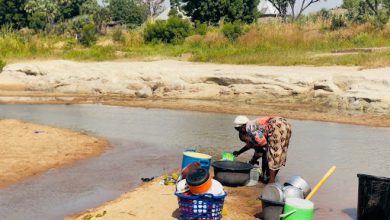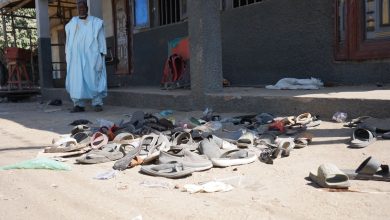Flooding Displaces Thousands in Nigeria’s Maiduguri, Forcing School Resumption Delay
In response to the situation, Grema Bulama, Acting Director of Schools Services, released a statement extending the closure of all public and private schools in Borno until Sept. 23, 2024—two weeks later than the initial date.
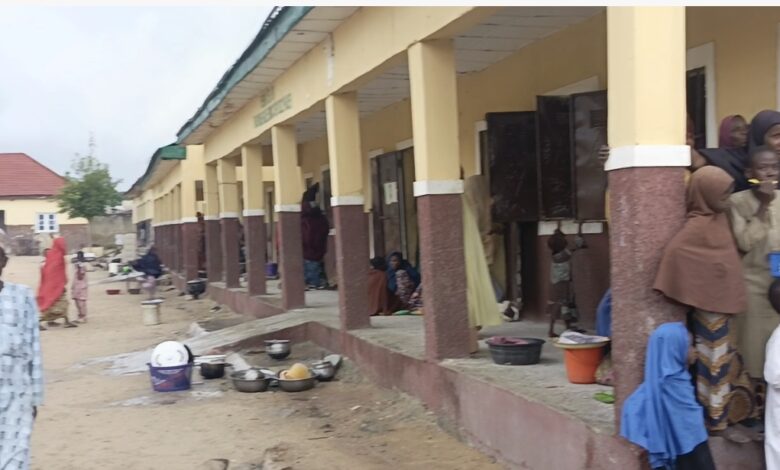
In the wake of severe flooding caused by overflowing dams, thousands of displaced residents in Maiduguri, northeastern Nigeria, are seeking shelter in public schools under dire conditions, facing hunger and uncertainty. The Borno state government has responded by postponing the resumption of both public and private schools by two weeks, with a new reopening date set for Sept. 23, 2024.
The flooding, triggered by the overflow of the Alau Dam —Maiduguri’s main water source— has submerged several neighbourhoods, particularly along the city’s coastal areas. Residents from Gwange and Customs areas were forced to flee their homes overnight, leaving behind essential belongings like food and clothing as rising waters engulfed their communities.
After three days in the makeshift shelters at a local school, the displaced have no access to food. The state government has yet to respond to these challenges, focusing instead on building barriers in vulnerable areas as water levels in the city’s streams continue to rise.
The situation is particularly dire at Gwange-3 Primary School, where over 4,500 displaced persons appeal for help. “We are hungry and have lost everything in the flood. Many mothers haven’t eaten for two days, giving what little they have to their children,” one resident said.
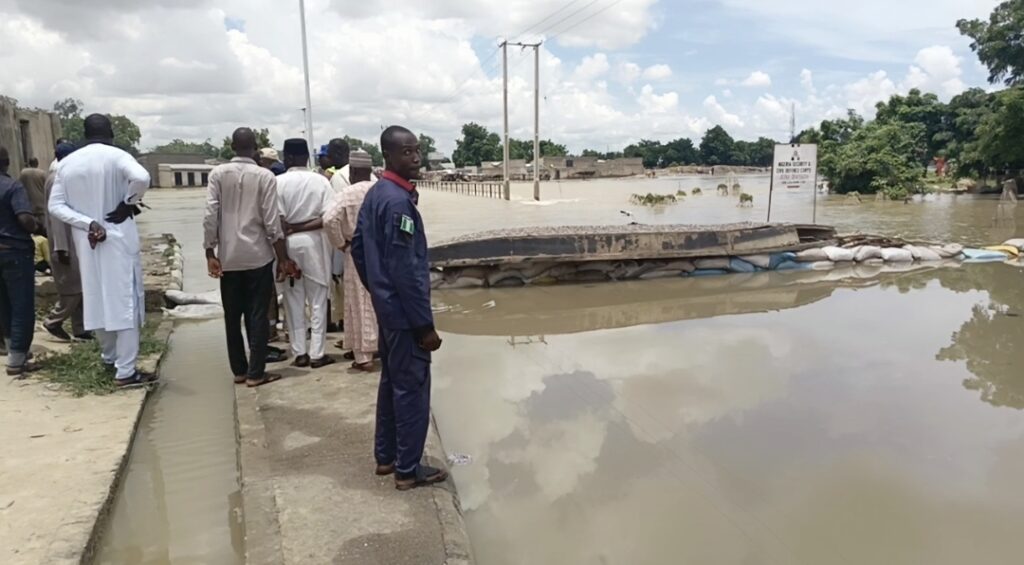
Floodwaters at the Moro-Moro Bridge, connecting the city’s northern and southern areas, have risen above the bridge, halting movement. Rising waters at the Lagos Bridge and Ngadabul Bridge are causing fears of further overflows.
An elderly man, Alhaji Modu Tela, lamented that his large family was left with nothing after submerging their home. “I have three children and over a hundred grandchildren and great-grandchildren to care for, and we are now squatting here without food or clothing. The government must urgently assist us before the situation worsens,” he said.
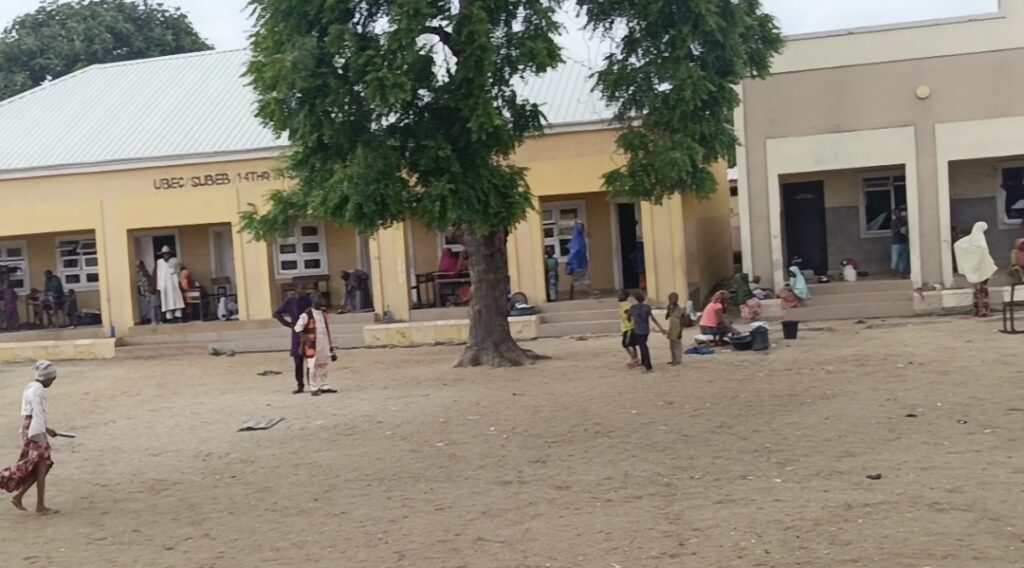
Unauthorised occupation
Despite the severity of the crisis, the state government has expressed concerns about using public schools as shelters, particularly with the new school term approaching. Some displaced residents reported being asked to vacate the premises without permission to stay.
“We had nowhere else to go when the flood took our homes. We pleaded to stay, but some youths forced entry when security refused us. Now, we’re being asked to leave,” a resident, Fati Saidu, lamented.
According to Grema Bulama, Borno’s Acting Director of Schools Services: “Due to the ongoing flooding across the state and its adverse effects, the Borno State Ministry of Education, Science, Technology, and Innovation has directed a statewide closure of all schools, both public and private, until Monday, [Sept. 23, 2024]. We urge all concerned parties to comply strictly with this directive. We regret any inconvenience this notice may cause and appreciate your understanding.”
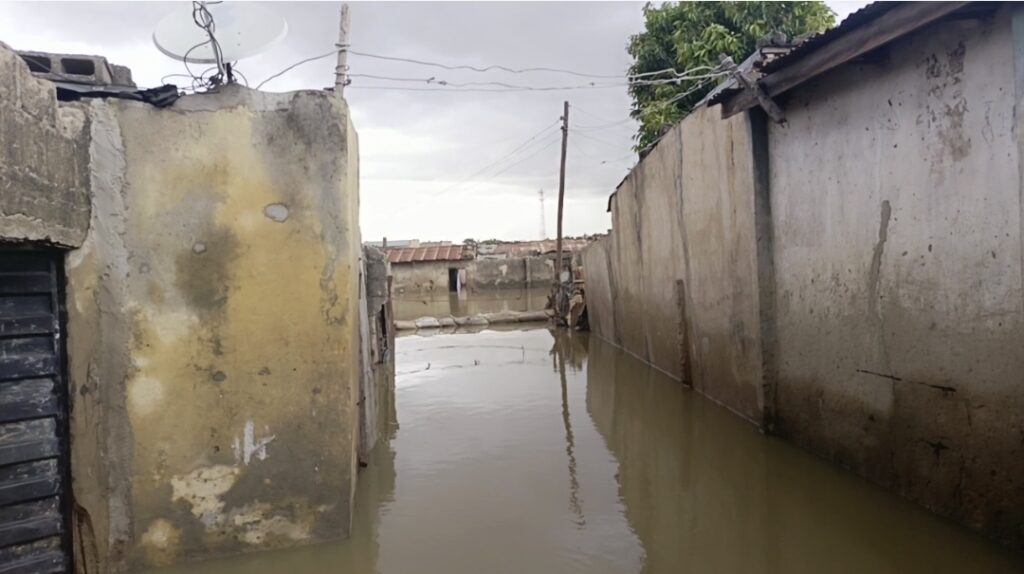
A government official, speaking anonymously, stated that those affected were previously warned to evacuate high-risk areas and avoid building on waterways. “Two years ago, the state tried to relocate them from riverbanks, but it was politicised. The governor warned they would face consequences for staying,” the official said.
Civil society organisations have also called for government intervention. Bulama Abiso, Director General of the Network of Civil Society in Borno, praised government efforts to secure coastal areas but urged support for displaced women and children.
“The government’s embankment efforts are commendable, but urgent intervention is needed for those displaced so they can access basic necessities until they can return home,” Abiso stated.
Support Our Journalism
There are millions of ordinary people affected by conflict in Africa whose stories are missing in the mainstream media. HumAngle is determined to tell those challenging and under-reported stories, hoping that the people impacted by these conflicts will find the safety and security they deserve.
To ensure that we continue to provide public service coverage, we have a small favour to ask you. We want you to be part of our journalistic endeavour by contributing a token to us.
Your donation will further promote a robust, free, and independent media.
Donate HereStay Closer To The Stories That Matter



